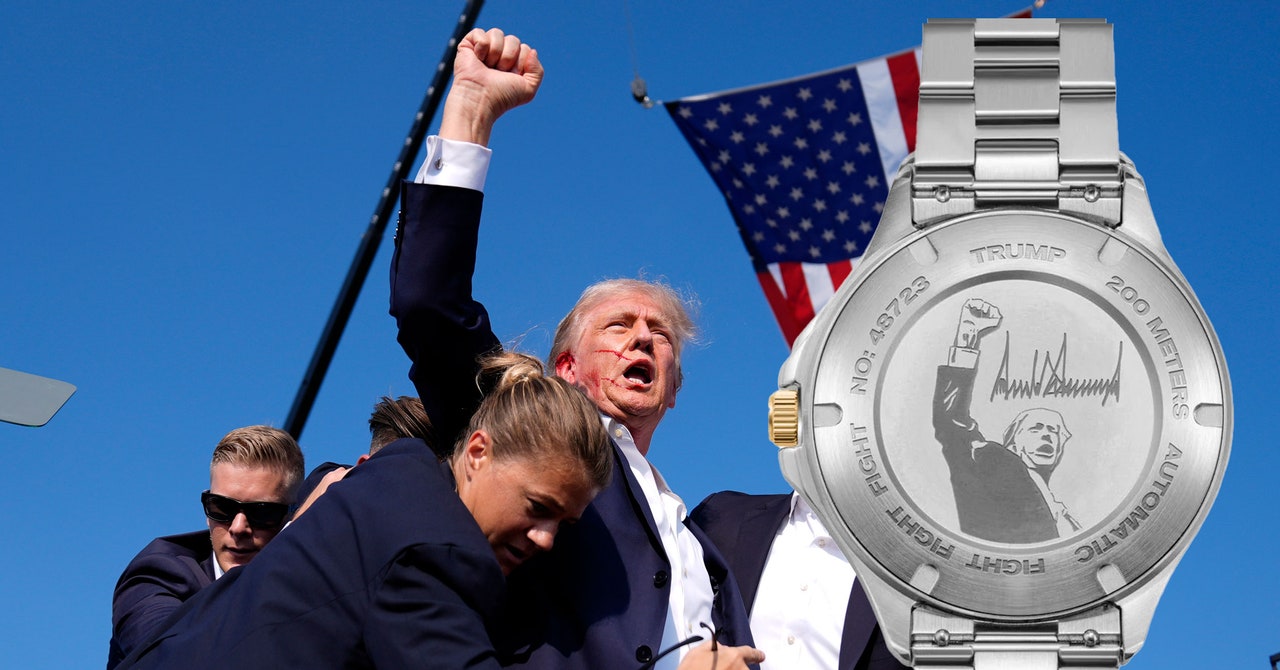The company behind Trump Watches prominently features an iconic image of the presidential candidate on its timepieces. There’s one big problem: It’s not allowed to.
…
According to the Associated Press, though, TheBestWatchesonEarth LLC advertised a product it can’t deliver, as that image is owned by the 178-year-old news agency. This week, the AP told WIRED it is pursuing a cease and desist against the LLC, which is registered in Sheridan, Wyoming. (The company did not reply to a request for comment about the cease and desist letter.)
Evan Vucci, the AP’s Pulitzer Prize–winning chief photographer, took that photograph, and while he told WIRED he does not own the rights to that image, the AP confirmed earlier this month in an email to WIRED that it is filing the written notice. “AP is proud of Evan Vucci’s photo and recognizes its impact,” wrote AP spokesperson Nicole Meir. “We reserve our rights to this powerful image, as we do with all AP journalism, and continue to license it for editorial use only.”



Well if you want an argument based on ‘first principles’, because the photographer actually put work into producing this picture, let alone their knowledge, likely expensive equipment, and hard earned skill to take a truly great shot, whereas you did nothing for it. Unless you are a professional model, but then you probably got compensated for your work as part of a deal.
Now the uses you describe are very different. Some are more casual and non-commercial in nature. Courts will consider such factors in a copyright infringement case.
Now does the above mean you have absolutely no say in what happens to a picture of you taken by someone else? Not exactly, you can also prevent third parties from using the likeness of you for purposes that might be damaging to your dignity or reputation, again, in some jurisdictions, I do not know the details. I am not a lawyer and it was a long time ago I studied these subjects. But basically my point is that the fact that it’s you in the picture may matter to an extent, depending on laws protecting personhood in your country, but not in the way you assumed where every photo of you is yours for the taking.